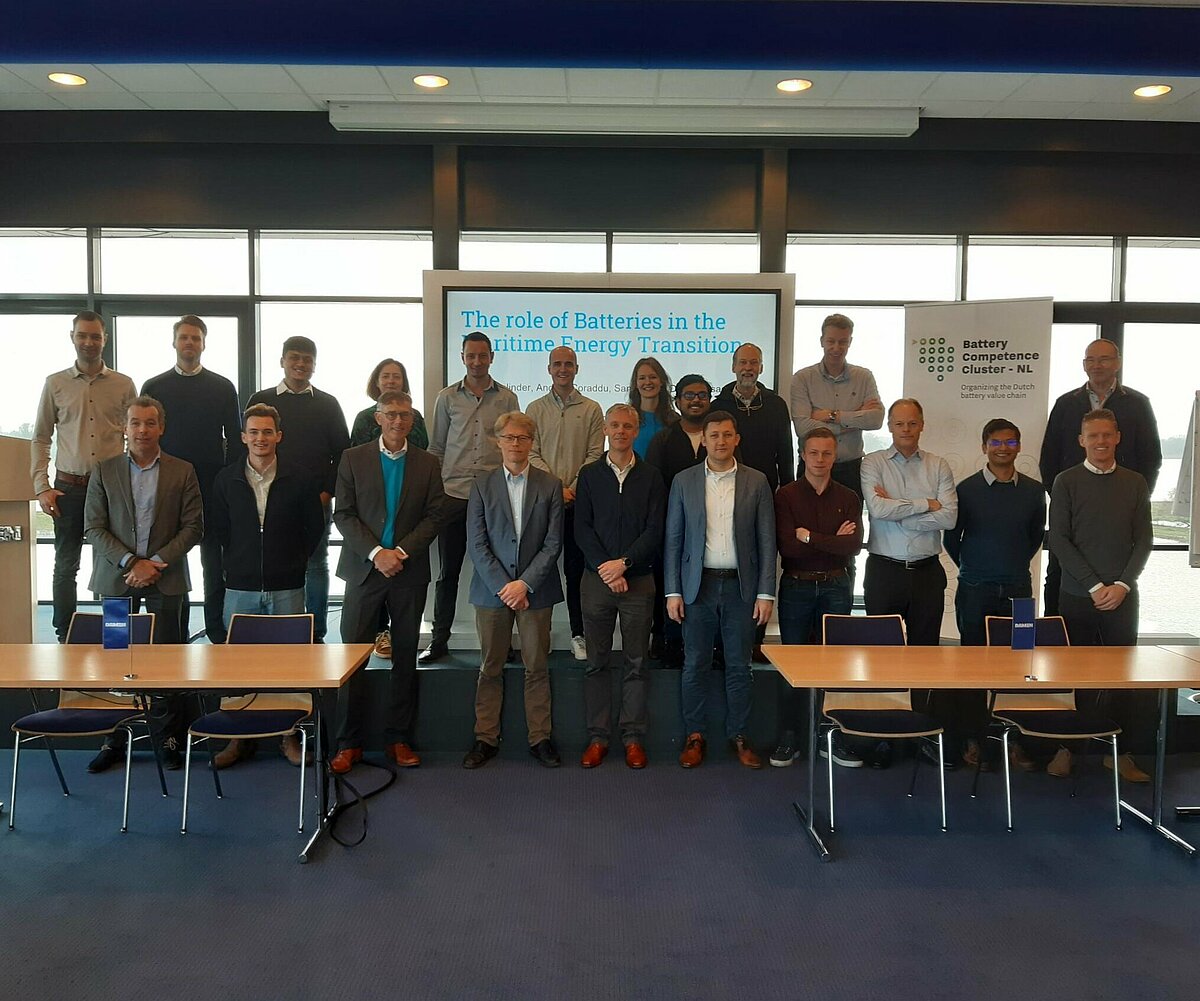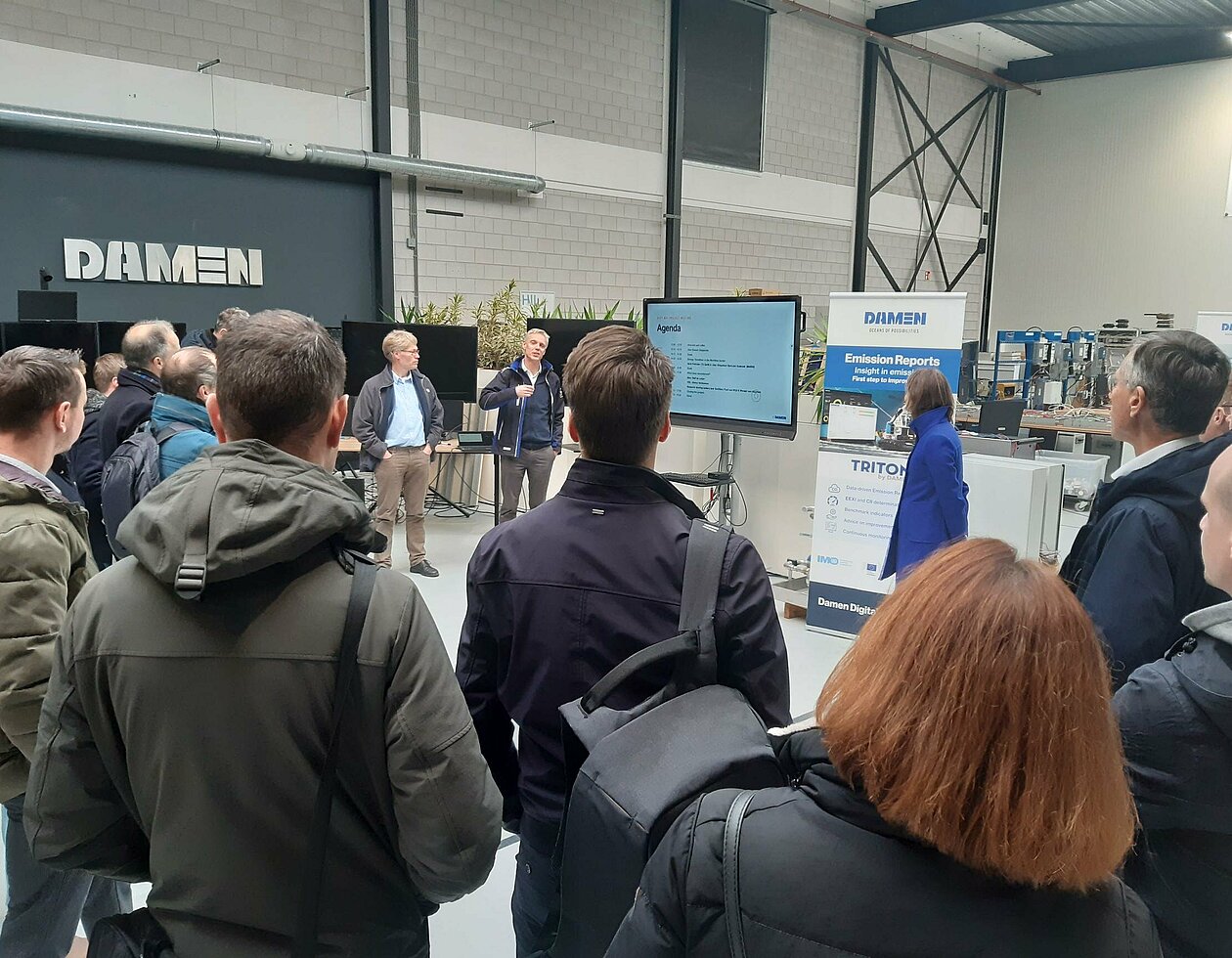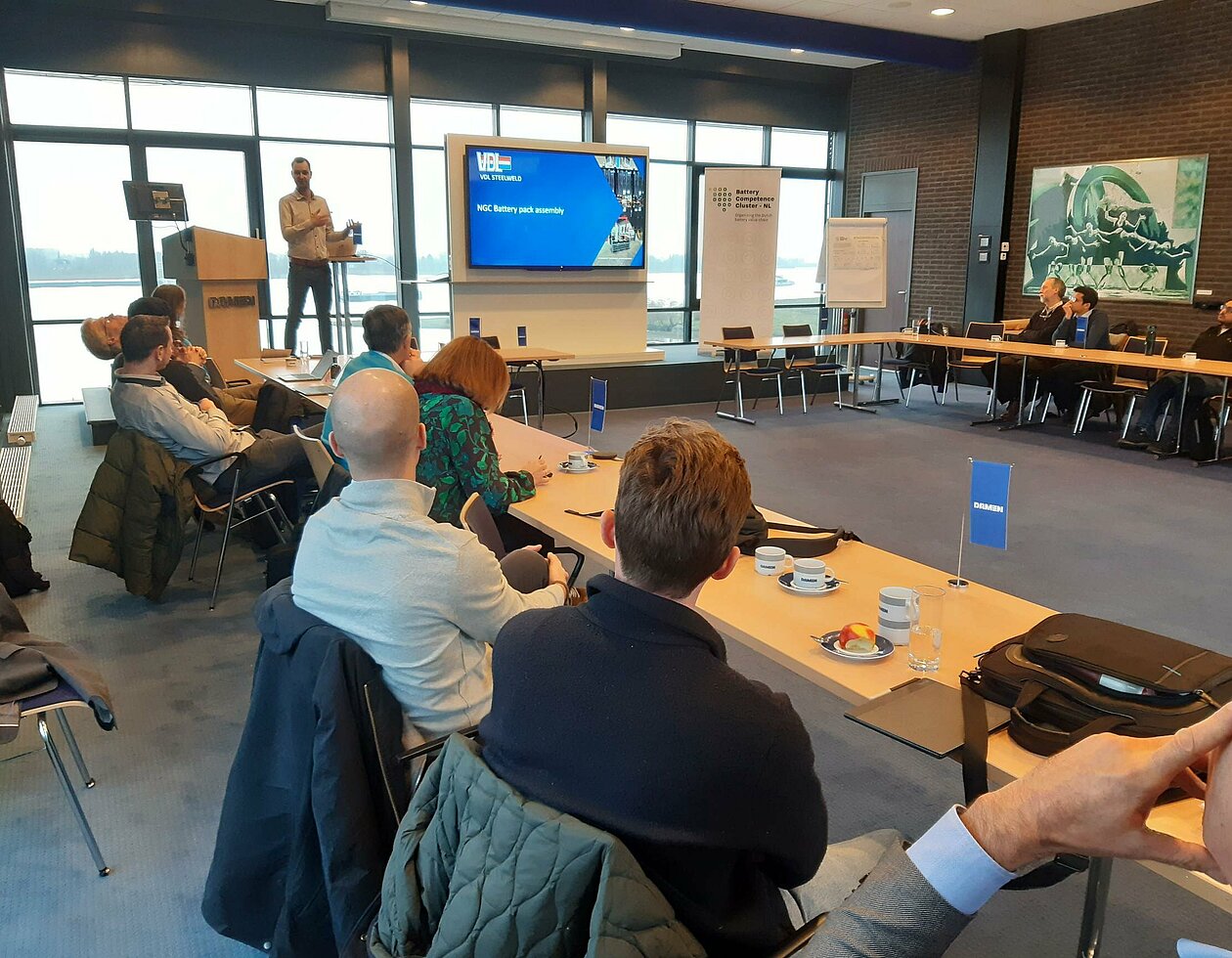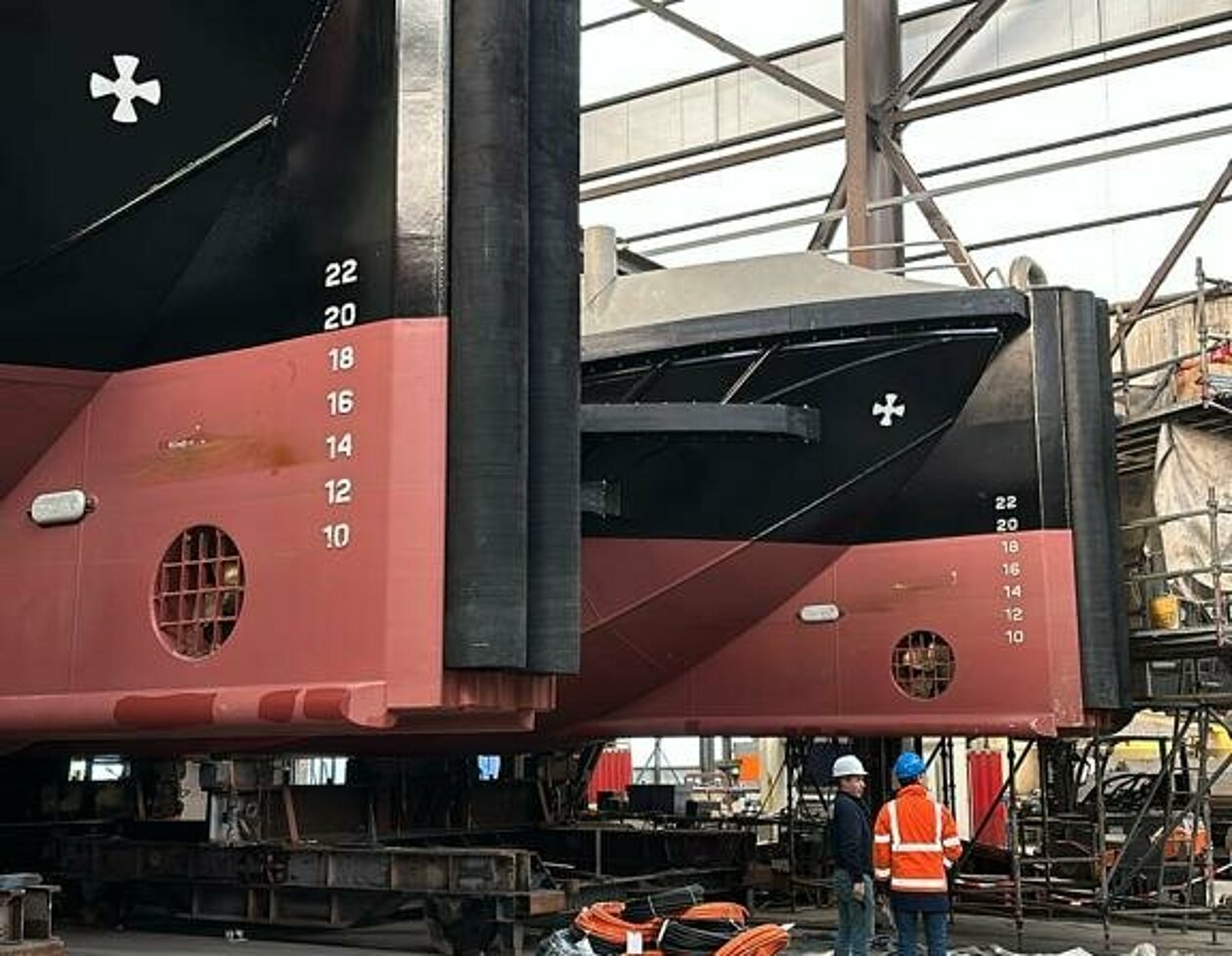03 April 2024
Charging into the Future: EU sets the standard with Battery Passport

Closing meeting REACT-EU BCC project at DAMEN Shipyards with all project partners

Accelerating the development of technical competences and building a supply chain through a public-private partnership by developing battery packages and systems, conducting tests and simulations and assembly and production activities. In 2021, the REACT-EU BCC project started with the partners VDL, DAF, DAMEN Shipyards, TNO, TU Eindhoven, ELEO, Brainport Development and RAI Automotive Industry NL, Netherlands Maritime Technology and Province of Noord-Brabant. On December 7, 2023, the closing meeting took place at DAMEN Shipyards.

During the meeting, the partners were given a tour of DAMEN's production halls and innovation and training center. An interesting insight into how ships are built and the innovations in electrification and batteries that DAMEN is working on.

A number of project milestones were presented in the afternoon. Thanks to the project, ELEO was able to realize several steps in their automated production line for battery packs, including cell testing and bonding. Next, Jimmy Vermeeren of VDL Steelweld talked about developing a battery pack that can be fully integrated into the floor or roof of the bus in VDL's new generation of electric Citea buses. They also developed a storage infrastructure to minimize risks for storing batteries and, with help from TNO, learned how to design so that the package is water resistant. Validation of the product and production steps is an important part at both companies, where they learned from each other. "And thanks to the cooperation with TNO in the project, especially when it comes to testing leak-tightness, we were able to make quicker steps in the right direction," Vermeeren explains.
TU Delft and Marin also presented the role of battery and the different functions of batteries in the maritime energy transition.
Part of the project was also for ecosystem development. Therefore, the feasibility of mutually sharing test facilities was examined. Wessel van Haarlem and Paul van Wijk of Bladgroen Innovations presented the results of the study. Safety test facilities and non-safety test facilities were examined. Based on the interviews with market participants, two business models for sharing test facilities were identified. Sharing test facilities will lead to accelerated innovation and industrialization. It will also encourage a culture of trust and cooperation. The recommendation is to appoint a central party with knowledge of the ecosystem to take ownership for developing the business model around the non-safety test facility. The second recommendation is to have an interested test house investigate a business case for a safety testing facility.

The conclusion of the REACT-EU BCC project does not mean that cooperation stops. Some of the parties are working together in the second project coordinated by the BCC-NL: Green Transport Delta - Elektrification. The Material Independence & Circular Batteries project is also a continuation of this REACT-EU project.